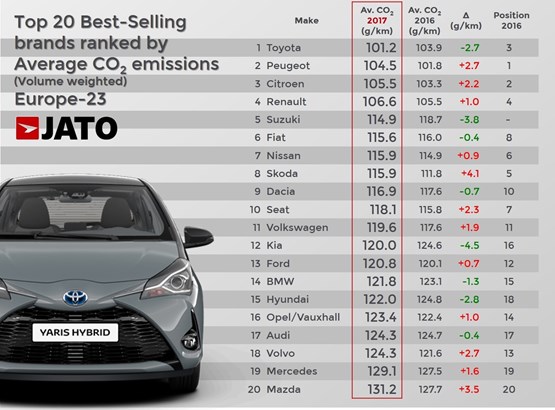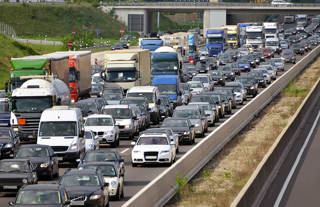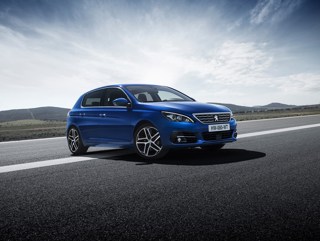Average CO2 emissions generated by new cars in Europe have increased for the first time in 10 years.
Jato Dynamics analysed 23 European markets and found that average CO2 emissions had gone up by 0.3g/km in 2017 – finishing at 118.1g/km.
This rise in average CO2 emissions correlates with a decrease in demand for diesel cars across Europe – which produce lower CO2 emissions than petrol cars – and the rising popularity of SUVs, which emit higher average CO2 emissions.
Data for 2017 shows that diesel cars registered in the market had a CO2 emissions average of 117.9g/km, compared to petrol cars, which had an average of 123.4g/km – a difference of 5.5g/km.

The average power output of a diesel engine registered in the EU was found to be 142PS, while the average power output of a petrol engine was found to be 123PS. According to Jato, this shows that diesels are chosen by customers who prioritise power output and torque.
With increased negative public perception towards diesels, combined with increased government regulation and scrutiny of the fuel type, the volume of diesel cars registered fell by 7.9% to 6.77 million units in 2017. In turn, diesel cars accounted for just 43.8% of total registrations in 2017, which is 11.1 percentage points lower than their peak, seen in 2011, and the fuel type’s lowest market share since 2003, when diesels accounted for 43.4% of total registrations.
Whilst demand for diesel cars declined in 2017, registrations of petrol cars increased by 10.9% – the highest level since 2003. This meant the market share of petrol vehicles grew by 3 percentage points from 47% to 50% between 2016 and 2017.
By contrast, the manufacturer with the lowest overall CO2 emissions was Toyota, a brand that is making clear strides away from diesel towards petrol hybrid and other alternative fuels.

The correlation between the decline in demand for diesel cars and the increase in CO2 emissions was most evident in Europe’s largest markets. Diesel demand fell by double-digits in Germany and the UK, and in France and Spain it fell by 5.4% and 8.1% respectively. As a result, average CO2 emissions increased in all of these car markets. Increased regulatory requirements, combined with higher costs for OEMs to make diesels cleaner, have helped cause this reduced demand for diesels and as a consequence increased CO2 emissions.


















Login to comment
Comments
No comments have been made yet.